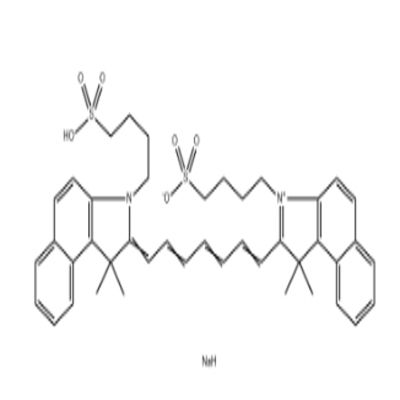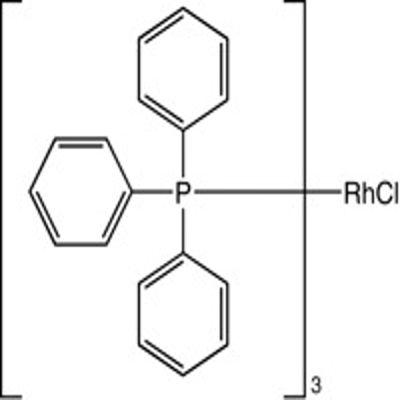Six targets derived from monoclonal antibodies play an important role in biological innovative drugs
-
Last Update: 2019-11-11
-
Source: Internet
-
Author: User
Search more information of high quality chemicals, good prices and reliable suppliers, visit
www.echemi.com
After more than 30 years of scientific research and accumulation, monoclonal antibodies (hereinafter referred to as monoclonal antibodies) have become more and more mature in all aspects, from basic research, clinical research to commercialization strategy, and become the mainstream branch in the field of medicine The first antibodies were found in 1890 by physiologist Emil von Behring and microbiologist shibasaburo Kitasato, who found antibodies as protective antitoxins in the blood of animals exposed to tetanus toxin of diphtheria Since then, antibody has become a major research topic, because it plays a key role in adaptive immunity and broad specificity In 1975, immunologists Georges K ö hler and C é SAR Milstein published a report in nature on how to make cells produce known specific antibodies This discovery has brought significant biological breakthroughs for people suffering from autoimmune and cancer diseases, and laid a foundation for the successful clinical trials of antibodies in the future In the mid-1980s, with researchers seeking to modify mouse monoclonal antibody with genetic engineering technology, they tried to humanize it (previous experiments were carried out in mice, belonging to mouse origin), such as splicing the variable region of mouse antibody and the constant region of human antibody to form chimeric antibody or the complementary decision region of the variable region of mouse antibody (CDR region) and human antibody Region exchange constitutes humanized antibody, etc The establishment of the above antibody technology solves the problem of the heterogeneity of antibody drugs and further promotes the wide application of antibody drugs With the continuous development, mAb has made great success in the treatment of autoimmune diseases and cancer besides its influence on medical diagnosis The 2018 Nobel Prize in physiology or medicine was awarded for the discovery of cancer treatment through antibody mediated inhibition of negative immune regulation It can be seen that the role of McAb is growing According to statistics, the market size of McAb has reached tens of billions of dollars, and it is expected to grow significantly in the future Monoclonal antibodies are playing a more and more important role, and the market size has reached billions of dollars, which is expected to grow significantly in the future The monoclonal antibody is secreted by a single B-cell clone Because B-cell can only produce a kind of specific antibody for an antigen determinant, it has the characteristics of high specificity in physical and chemical properties, single biological activity and strong specificity in combination with antigen Compared with the traditional small molecule drugs, the number of targets of mAb is much smaller This is primarily due to the nature of the antibody itself Generally speaking, the molecular weight of antibody molecules is large and the structure is complex Most of the antibodies can only play a role on the surface of cell membrane and the molecules secreted, but it is difficult for the molecules in the cell to play a role Based on the industry survey, it is found that there are six types of monoclonal antibody targets in phase III clinical in domestic enterprises, which are PD - (L) 1, CD20, HER2, VEGF / VEGFR, EGFR, TNF - α / TNFR2, with a valuation of 263.243 billion, 24.935 billion, 19.523 billion, 39.306 billion, 36.474 billion and 125.871 billion, respectively Immunocheckpoint inhibitor: PD - (L) 1 broad-spectrum anti-cancer monoclonal antibody is the most popular target in immunotherapy at present By blocking the combination of PD-1 of activated T cells and PD-L1 of tumor cells, it restores the immune ability of the body's autoimmune cells to effectively recognize tumors At present, FDA has granted 23 additional approvals for PD-1 / PD-L1 monoclonal antibody drugs, including 4 new PD-1 antibody drugs Globally, nine kinds of PD-1 / PD-L1 McAbs have been approved for marketing Its approved indications include melanoma, lung cancer, renal cancer, lymphoma, head and neck squamous cell carcinoma, liver cancer and more than 12 kinds of tumor diseases It is a well deserved broad-spectrum anti-tumor drug Since 2018, three domestic PD-1 antibodies developed by Jushi, Xinda and Hengrui have been approved for listing At present, only the PD-1 antibodies of Baiji Shenzhou are under review, and the development of new indications of Baiji Shenzhou, Jushi, Xinda, Hengrui and kangfang Tiancheng has entered phase III clinical practice It can be seen that the competition of PD-1 monoclonal antibody is increasingly fierce CD20 monoclonal antibody is mainly used in the treatment of non Hodgkin's lymphoma and other blood diseases At present, the world's listed monoclonal antibodies include the first generation of human mouse chimeric rituximab, the second generation of all human monoclonal antibody, alfatolimumab (trade name: Arzerra), and the third generation of atozumab (trade name: gazyva) As far as China is concerned, the "hanlikang" (rituximab biological analogue) rate of Fuhong Hanlin was approved by the first domestic anti-CD20 antibody market in February 2019, and it is also the first biological analogue in China, with the indication of non Hodgkin's lymphoma In addition, anti-CD20 antibodies of Xinda biology, Zhengda Tianqing, Haizheng pharmaceutical, Shenzhou cell and Xikang biology are in phase III clinical trials HER2 mAb is mainly used to treat HER2 positive breast cancer and gastric cancer At present, three of Roche's HER2 monoclonal antibodies (trastuzumab, patozumab and t-dm1) occupy the main market, and its most successful antibody coupled drug (ADC) is also born in this field (Roche's kadcyla) As far as China is concerned, Sansheng Guojian and Fuhong Hanlin took the lead in submitting the NDA application of anti HER2 monoclonal antibody In addition, Haizheng pharmaceutical, Zhengda Tianqing, baiaotai, Jiahe biology are also in phase III clinical development It is expected that the first domestic anti HER2 antibody will be listed in the near future The principle of VEGF monoclonal antibody is to block tumor angiogenesis, which is commonly used in the treatment of colorectal cancer, renal cell carcinoma, non-small cell lung cancer and senile macular degeneration At present, the macromolecular drugs on the market include bevacizumab and rapacizumab As far as China is concerned, the fastest-growing bevacizumab analogues are Qilu pharmaceutical which submitted NDA in August 18 and Xinda biological which submitted NDA in January 19 In addition, Hengrui pharmaceutical, Fuhong Hanlin, Zhengda Tianqing, Hualan biological (Hualan gene), Watson biological (Jiahe biological) and other enterprises are in phase III clinical stage EGFR monoclonal antibody can block the binding site of EGFR and inhibit the growth of tumor Its indications mainly include colorectal cancer, nasopharyngeal cancer, breast cancer, head and neck squamous cell carcinoma, etc At present, the drugs on the market in the world include cetuximab and panimab, and the similar drugs on the market in China are nitorzumab of BTB (used for the treatment of NPC, esophageal squamous cell carcinoma, cervical squamous cell carcinoma, etc are in clinical stage III), and the company is carrying out three phase III clinical trials to widen the indications, and Mabo pharmaceutical is in phase II clinical stage TNF mAb is an important target of autoimmune diseases, which is mainly used to treat rheumatoid arthritis, ankylosing spondylitis, psoriasis and Crohn's disease The macromolecular drugs on the market in the world include infliximab, adalimumab, cetuxumab, golimub and etanercept (fusion protein) Among them, adalimumab, etanercept and infliximab are all drugs with global sales of more than 5 billion US dollars, especially adalimumab is in the top 1, so the market capacity in this field is huge At present, three domestic fusion proteins have been listed on the market, namely "yisaipu" of Sansheng Guojian, "ambano" of Haizheng pharmaceutical and "qiangke" of SAIJIN biology In the aspect of antibody drug development, on November 7 this year, China's first adalimumab analog, the fastest-growing gelleli independently developed by baiaotai, was approved for listing Other fast-growing products include Haizheng pharmaceutical's hs016, Xinda biological's ibi303 and Fuhong Hanlin's hlx03, all of which are in NDA stage These varieties are similar to adalimumab Medicine In addition, the varieties developed by Haizheng pharmaceutical, SAIJIN biology, Zhengda Tianqing, Jiahe biology, Junshi biology and Qilu pharmaceutical have entered phase III clinical practice, covering the products of standard adalimumab, infliximab and etanercept In the wave of strong development of the global antibody drug industry, everything in antibody research and development is slowly changing In antibody engineering drugs, tumor antibody drugs are emerging, occupying half of the world Monoclonal antibody drugs play an important role in the treatment of anti-tumor because of their unique mechanism and efficiency The domestic antibody drug industry has also realized the leap from basic research to industrialization The antibody products are gradually increasing and the market is gradually expanding At present, compared with foreign countries, China's antibody drug market space is still very huge In the era of continuous support of national policies and continuous gathering of talents, the monoclonal antibody industry is entering a critical development period The market is actively encouraging enterprises and universities to make innovative drugs, develop culture media and cell culture technology platform with independent intellectual property rights, and accumulate large-scale culture technology and production technology In order to promote the healthy development of the whole antibody drug industry, we should choose the appropriate industrialization way Reference source:
This article is an English version of an article which is originally in the Chinese language on echemi.com and is provided for information purposes only.
This website makes no representation or warranty of any kind, either expressed or implied, as to the accuracy, completeness ownership or reliability of
the article or any translations thereof. If you have any concerns or complaints relating to the article, please send an email, providing a detailed
description of the concern or complaint, to
service@echemi.com. A staff member will contact you within 5 working days. Once verified, infringing content
will be removed immediately.







